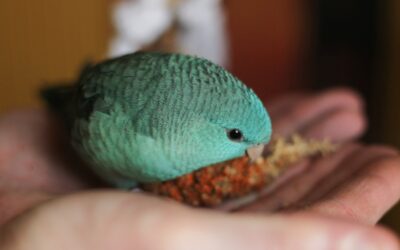Have you ever asked yourself how long is a dog pregnant?
Welcoming a new litter of puppies into the world is an exciting adventure for any dog owner. However, the process leading up to the birth of these little furballs is a vital and tender one that requires patience, knowledge, and care.
This in-depth exploration of a dog’s pregnancy will equip you with the understanding and preparation you need to guide your furry loved one through this miraculous time.

The Basics: Dogs Are Pregnant for 63 Days
Canines have a pregnancy period, or otherwise known as your dog’s gestation period, that lasts about 63 days, starting from the point of ovulation.
Understanding this timespan is crucial, as it helps to ascertain the due date for many pregnant dogs and plan for prenatal and whelping care accurately.
To the uninitiated, it may seem like a short window for such a profound life event. However, within these two months, a series of transformational changes are taking place in your dog’s abdomen as she nurtures the life growing within her.
Dog Pregnancy Stages
Dog pregnancy can be broken down into several stages, each marked by its own unique set of biological and behavioral shifts.
Canine Reproduction Basics
Before pregnancy can occur, the female dog goes through an estrus cycle approximately every six months, but this heat cycle may vary by breed and individual.
This is her reproductive cycle when she’s in heat and able to mate.
The Estrus Cycle
Understanding the timing of the estrus cycle is essential for planned breeding.
The cycle includes four main phases: proestrus, estrus, diestrus, and anestrus. The most notable phase for pregnancy is estrus, commonly known as “heat,” where a female is fertile and receptive to mating.
Pregnancy Confirmation
Signs of pregnancy, such as changes in behavior, may start around the third or fourth week, but accurate confirmation typically occurs through a veterinarian via palpation, ultrasound, blood test or hormone testing around day 28 after breeding. When your dog is pregnant, she may experience morning sickness or clear vaginal discharge, just like a person.
Gestation Period
The gestation period of 63 days female dogs is relatively short compared to other mammals but is long enough for significant fetal development to take place within the canine reproductive system. Your dog’s belly is grow during this period, and you will also likely see visible puppy movement.

How Long is A Dog Pregnant? Factors Affecting Pregnancy Length
While 63 days is the average gestation period for dogs, various factors can influence how long dogs have this duration.
Dog Breed Variations
Different breeds may have slightly different gestation periods. Smaller breeds tend to have shorter pregnancy lengths, while larger breeds may carry their puppies longer.
Health and Nutrition
The overall health and nutrition of your dog how many puppies can affect her pregnancy length. Good health can lead to standard growth and development, which should proceed on schedule.
Litter Size Influence
The number of puppies in the litter can also play a role. A larger litter can sometimes lead to a shorter pregnancy, as the mother’s body may be ready for an earlier birth to prevent complications.
Signs of Impending Labor
Several signs can indicate that your dog is close to giving birth.
Behavioral Changes
Many dogs will become more affectionate or seek out a quiet nesting spot in the days before labor begins.
Physical Symptoms
Physical changes, such as a decrease in body temperature and an enlargement of the mammary glands, can also signal that whelping is near.
Preparing for Whelping
It’s crucial to prepare a safe, comfortable, and quiet place for your dog to birth her puppies. This “nesting box” should be in an area of your home where she feels secure and relaxed.
Health and Care During Dog Pregnancy
Proper health and care during pregnancy are essential for the well-being of your dog’s pregnant belly, and her future puppies. Your dog’s journey to becoming a mother will be rapid and most pet owners should seek veterinary medicine very early in the first stage of pregnancy, especially to calculate conception dates!
Prenatal Veterinary Care
Early and consistent veterinary check-ups are crucial. Your vet can confirm pregnancy and give tailored advice based on the specific needs of your dog and her breed.
Nutritional Requirements
Pregnant dogs have specific nutritional needs that will change as their pregnancy progresses. Quality dog food, possibly enriched with supplements, can meet these needs.
Exercise and Rest Balance
Ensuring your dog gets the right balance of activity and rest can contribute to a healthy pregnancy and easier labor. Your furry friend needs normal exercise while pregnant!

Postpartum Care for the Mother
First and foremost, it’s important to give the mother a comfortable, quiet space where she can rest and nurse her puppies without disturbances.
A warm, clean, and safe environment is essential for their recovery and growth. Monitor her closely for any signs of distress or complications, such as excessive panting, lethargy, or a lack of interest in her puppies, which could indicate an urgent need for veterinary attention.
Nutrition and Hydration
Nutrition plays a crucial role in postpartum recovery. The mother will need a diet rich in calories, nutrients, and calcium to support lactation and help her regain strength. High-quality, nutrient-dense dog food designed for lactating mothers is ideal.
Additionally, ensure she has constant access to fresh water, as nursing can significantly increase her hydration needs.
Veterinary Check-ups
Scheduling a postnatal or prenatal checkup call-up with your veterinarian is critical to ensuring the mother’s health and addressing any potential complications early.
The vet can provide a comprehensive health evaluation, administer necessary vaccinations, and guide you on proper care for both the mother and her puppies.
Providing Emotional Support
Just like humans, dogs can experience a range of emotions after giving birth, including anxiety or stress.
Offering your presence, gentle affection, and reassurance can help soothe and comfort the mother. It’s also a wonderful opportunity to strengthen your bond with her and the newborns.
Monitoring the Puppies
While the mother will instinctively care for her puppies, it’s important to monitor their development and health. Ensure they are nursing regularly, staying warm, and showing signs of healthy growth.
Any signs of weakness, distress, or failure to nurse should be promptly addressed by a veterinarian.
Rest and Recovery
Remember, rest is essential for a new mother. Minimize handling of the puppies for the first few weeks and allow the mother and her litter to bond and rest undisturbed as much as possible.
This period of rest and recovery is vital for the well-being of both the mother and her newborn puppies.
By following these guidelines with care, warmth, and professionalism, you are not only ensuring the health and happiness of the mother and her puppies but also paving the way for a lifetime of joy and companionship with these new furry members of your family.

Aftercare for Newborn Puppies
After the birth of the puppies, providing the right care is essential for their healthy development and well-being. The first few weeks of life are critical, and as a caring pet owner, you play a vital role in ensuring they receive the best start possible.
Warmth and Comfort
Newborn puppies cannot regulate their body temperature, so maintaining a warm and cozy environment is paramount.
A heating pad or lamp can help, but be sure to monitor the dog’s temperature very closely to avoid overheating. Provide a soft, clean nesting area where they can snuggle with their mother and siblings.
Feeding and Nutrition:
For the first few weeks, puppies will rely solely on their mother’s milk for nutrition. Observing that each puppy is nursing properly is key.
Should there be any concerns about a puppy’s ability to nurse or the mother’s milk supply, consult your veterinarian immediately. They may recommend supplementary feeding with a high-quality puppy milk replacer.
If you need puppy food and food for the recovering mother, Kate’s K9 Pet Care provides pet supply home delivery!
Health Monitoring
Keep a close eye on each puppy for any warning signs of health issues such as difficulty breathing, crying continuously, or not gaining weight.
These could indicate potential problems that require immediate veterinary attention. Regular veterinary check-ups are essential to ensure they are growing correctly and receiving appropriate preventive care, such as deworming and vaccinations at the recommended ages.
Socialization and Early Learning
The first and last few weeks together are also a critical period for socialization. Gently handling the puppies for short periods can help them become comfortable with human interaction. Introduce them to various gentle experiences to aid their development into well-adjusted adult dogs.
Love and Gentle Care
Above all, providing a loving, gentle touch and a peaceful environment supports their developmental needs and helps foster a strong bond between you and the new members of your furry family.
By approaching the aftercare of newborn puppies with warmth, professionalism, and a deep sense of responsibility, you are setting the foundation for their healthy growth and a lifetime of happiness. Your dedication to their well-being reflects the love you have for your pets and the trust you place in us to guide you through this incredible journey of raising the next generation.

Conclusion
Understanding the duration and care involved in canine pregnancy ensures the best possible start for the next generation of your pet family. Remember, each every dog is pregnantand every pregnancy is unique. Consult with a trusted veterinarian for personalized guidance and support throughout this incredible journey.
Pet care is a responsibility filled with joy and moments that deeply connect us to our loyal companions, especially during times as tender as pregnancy. Knowing “how long is a dog pregnant” is just the beginning. Your dedication to learning and preparing for each stage of this process is a testament to the love and care you have for your furry friend. With the right information, patience, and support, you can help your dog experience a safe and healthy pregnancy, leading to the arrival of many happy, tail-wagging memories.
Let’s continue to nurture our pets with the warmth, professionalism, and care they deserve. So, let’s embark on this journey of love and new life together!
After all, our pets are more than just animals – they are beloved family members who deserve the best care possible. By maintaining a caring, warm, and professional tone throughout this content







